Luke Stone 03 - Situation Room Read online
Page 10
“What are your ideas, General Walters?” Kimball said.
The general referred to a single sheet of paper his aide handed him. “We have a pretty robust menu of immediate options in front of us. For example, we have more than a hundred sleeper cells embedded across China, which we could activate for our own acts of sabotage with just a few hours’ notice. Some of those networks have degraded, or have been rolled up by the Chinese government, but many of them are still operational.
“And that’s just one small possibility. The options become more devastating, and therefore more attractive, the longer the retaliatory time frame extends. Make no mistake. We will win any war with China. It will take some time, but we will prevail.”
“Like we did in Korea?” someone said.
A ripple of laughter went around the room.
The general wasn’t laughing. “Apples and oranges. In the 1950s, the two countries were somewhat evenly matched, especially in terms of a ground war. But even then, remember that we were fighting a limited war in Korea, and the Chinese mobilized four million men. Now, our weapons technology is vastly more advanced than theirs. And we won’t even consider a ground war.”
“I think,” Michael Parowski said, “that any war with China is a nightmare scenario, and we should do whatever we can to avoid it.”
“And if we’re attacked again?” the general said.
“Treat it as criminal investigation,” Parowski said.
“I can’t even answer that,” the general said. “Who are we going to bring up on charges? The President of China? Are you going to parachute in and arrest him, Congressman?”
“What about economic sanctions?” Susan said. These were the first words out of her mouth since Luke walked into the room. “Kurt, what will be the ramifications of that?”
Kurt shrugged. “Depends on what kind of teeth they have. It also depends on who else participates. As you know, we’ve been locked in a trade war with China for two years. They manipulate their currency to give them a favorable trade balance, and they destabilize markets by flooding the world with bottom-shelf products, many of them convincing knock-offs at a fraction of the cost of the originals. Their trading base becomes more diversified all the time.
“They’ve long traded with Russia, and they’re opening vast markets in India. There are now more than a hundred million people in India with the means to buy consumer products, and China is wowing them with cheap thrills. Iran is a major market for them. And increasingly, so are South American countries like Brazil and Argentina. Meanwhile, China’s own middle class is growing geometrically. Frankly, I don’t know what effect sanctions are likely to have. This is a bad time for an economic confrontation with China. They might not need us anymore.”
“So what we’re saying,” Parowski said, “is we have no idea where and when the next attack is likely to take place, and we have no clear way to respond, outside of an all out war, if it does happen?”
“Right now, the navy has a strike group from the Seventh Fleet in port in the Philippines,” the general said. “It consists of the aircraft carrier John C. Stennis, two Aegis destroyers, and two cruisers. That strike group alone could destroy or significantly degrade China’s naval presence in the South China Sea in twenty-four hours. We back them up with a second strike group currently on maneuvers in the ocean east of Taiwan.
“Then we fortify the whole thing with missiles locked on air force and naval bases in southern China. If another attack takes place, we seize the South China Sea, with impunity. We send Seabees ashore to dismantle the man-made islands they’ve been building, or better yet, plant American flags on them.”
He raised a hand to stifle the growing buzz of complaints. “It’s not a war. The Vietnamese want us there, and I’ll bet we take the entire region without firing a shot.”
He looked at his aide. The aide nodded.
“From this moment on, the next attack on American soil means we take territory. A second attack after that means we sink Chinese container ships at sea—all of them, anything in the Western Hemisphere or headed across the Pacific toward the Americas. How’s that for sanctions? No more trade with us, no more trade with Brazil or Argentina.”
To Luke, it was clear that the general was not speaking off the cuff. He had come to the meeting with these ideas in his pocket. And he wasn’t speaking for himself. The Joint Chiefs of Staff had probably cooked up this plan years ago. Luke had to admit it had a certain grim logic.
“That’s not a war, General?” Parowski said.
The general shrugged. “It’s not a war if they don’t fire back. Anyway, terror attacks on civilian populations constitute an act of war in my book.”
“We don’t even know if it’s them,” Parowski said. He turned to the President. “Susan?”
As Luke watched, all eyes were suddenly on her. She sat back in her seat and made a temple with her fingers on the table. She didn’t hesitate. “Do it,” she said. “Move the Seventh Fleet strike group you mentioned toward the South China Sea. How long will it take?”
The aide whispered into the general’s ear. “They are eighteen hours from there at full steam,” the general said.
Susan nodded. “Okay. We’ll move them into place. Start them in that direction, but at three-quarters steam. We need the extra time. Also, lock surface to surface missiles on, let’s say, fifteen container ships. Make it obvious that we’re doing it.”
Susan sighed, a long heavy exhalation.
“Now, I can’t guarantee I’ll give the order to destroy civilian vessels. I’ll need more facts first. General, can your people get me data on how many ships we’re talking about in total, personnel numbers aboard each ship, and known environmental hazards—including what the ships are carrying? I really don’t want to put any more hazardous chemicals into the oceans than we have already.”
The general almost smiled. Luke almost did, too. He’d have to talk to her about that. Chinese container ships were floating environmental disaster areas—it didn’t matter what they were carrying. Bomb even one, and you were sending hundreds of thousands of gallons of oil and gasoline, and in many cases coal, plus tons of asbestos, plastic, sheet steel, electrical wiring lined with toxic poly-fluorocarbons, and God only knew what else, to the bottom of the sea. Of course, the military would be happy to gloss over that in their report to the President.
“I’m not a maritime expert,” the general said. “But I can tell you this. Modern container ships are mostly automated. They run with skeleton crews. We can sink a hundred of them and probably kill fewer people than the Chinese killed here in the United States yesterday.”
There was a moment when no one said anything.
“On that happy note,” Susan said, “if none of you mind, I feel like now is a good time to take a short break.”
People immediately began to rise from their seats. They had the air of people who had been here a long time, and had been waiting for permission to get out. A quiet, slow-motion stampede started toward the exit.
“Twenty minutes,” Kurt Kimball called out. “In twenty minutes, I want essential personnel finding their way back in here.”
Luke began to move through the crowd to the doors. Suddenly Susan was standing beside him. She was much shorter than he was. She appeared to have given up wearing high heels. She tugged his sleeve like a little girl.
Her face was serious. “We missed you, Luke. I kept turning toward the door, hoping you would walk in. Someone has to figure this out. We’ve been in here for hours, and we’re no closer to knowing how to stop another attack. The more data that comes in, the wider and crazier the circles become. I don’t want a war with China. No one does. But if we get attacked again today, that’s where we’re heading.”
* * *
“Susan, can I be honest with you?”
She sat in her upstairs study with her new, soon-to-be Vice President. They were alone, eating small finger sandwiches, which weren’t half bad, and drinking insipid coffee, whi
ch was terrible. It was a blessed relief to be up here, away from the Room for twenty minutes.
Kurt Kimball wasn’t here. Kat Lopez wasn’t here. No one was holding a computer tablet or reading from prepared notes. No aides were lingering at the edges of the conversation, waiting to be assigned a task that would send them darting toward the door, phone in hand, already dialing.
She sat back in her big comfortable chair. She crossed her legs. She quietly ran her hand along the pinstriped fabric of her suit pants. Her legs were getting flabby. She hated it. She had been a workout fiend since she retired from modeling.
Somewhere along the way, probably in a women’s magazine, she had tripped over the idea that muscle was sexier than the half-alive skin and bones look favored in the fashion industry, and she never looked back after that. But now she was headed toward middle-aged spread, flabby arms and legs, no muscle tone anywhere. It was impossible to maintain a workout schedule while reeling from one crisis to the next.
Would people think that was a frivolous concern? Maybe. But shouldn’t the President be healthy?
She sighed and glanced out one of the floor-to-ceiling windows. The sun was moving westward across the sky. The grounds were green and lush, rolling down to a wooded thicket near the western boundary of the Naval Observatory grounds. It was getting on toward her favorite time of day to be here in the study. The late afternoon light that came through these windows was just… fantastic. She imagined how a long-dead architect, 170 years before, had come to this spot, faced west, and designed a study room, a sanctuary, to perfectly capture the sunlight.
“Susan?”
She looked at Michael Parowski. He was wearing a blue dress shirt, sleeves rolled to three-quarters. He watched her with steely eyes. Rugged good looks… check. Charm… check. Intelligence… check. A large constituency that adored him… check. He seemed to have all the tools, but if so, then why was she suddenly feeling the slightest bit hesitant about extending the Vice Presidency to him?
Because he had stepped into those meetings downstairs, and then immediately overstepped—that’s why.
“Sure, Michael. Be as honest as you like. This isn’t the time to stand on ceremony.”
He nodded. “Okay, good. Here it is. I don’t think you should let people like that general muscle you around in meetings. Just a few months ago, people like him were plotting to…”
Susan raised a hand. “We vetted him. Everyone who comes in that room has been vetted as carefully as you were. He had nothing to do with the coup plot. General Walters is a lifetime military man, who also happens to be on our side.”
Parowski shook his head. “These people are our ideological enemies, Susan. He would ramp us up into a direct confrontation with China. He wants to have a war in Asia? If I recall correctly, the last couple of times didn’t go so well. I’m not ready to send the son and daughters of my constituents…”
“The entire American people are your constituents now, Michael.”
He nodded. “Exactly. And I’m not prepared to send their sons and daughters to fight and die, or come back here with the most horrible injuries and disfigurements imaginable—and believe me, Susan, I’ve been to the military hospitals many, many times, so I’ve seen it, I know all about it—all for reasons that can’t be adequately explained, or that make no sense.”
“The attack on the dam wasn’t adequately explained?” Susan said. “Do more than fifteen hundred dead at last count make sense to you?”
Parowski stopped. He took a deep breath. “Susan, do we even know it was China?”
“We have reason to believe it was.”
She realized as soon as she said it how flat a statement it was. They had a pile of circumstantial evidence, at best. If it were a case that had to be tried in a court of law, no jury would convict. They couldn’t say for sure what the prisoner Li Quiangguo’s involvement was, or who he might have been working for. They didn’t even know who he really was.
“But we don’t know.”
“No, Michael, we don’t.”
“And you just sent a small armada of ships into the South China Sea.”
Now Susan raised both hands. She gave him the double STOP signs. He was a bulldog, and that’s what she was going to like about him, remember? But he was already going too far.
“Michael, you’re the senior Congressman from Ohio. That’s great, and you’ve done a wonderful job in that role. But you’re moving up to the big leagues now. Things are done differently here. I sent ships toward the South China Sea. Not into it. At three-quarters steam, they will arrive there in twenty-four hours. At any moment, we can have them slow down, stop, turn around, or continue. If the Chinese are behind the dam attack, they will see we mean business. They don’t want those ships in the South China Sea any more than we do. I’m sure they don’t want us to destroy their navy, or cripple their trade with the West by bombing their container ships.”
Parowski scowled. “What will that general do if you tell him you want the navy to turn those ships around?”
Susan smiled. It was a fake smile, and she was pretty sure it looked that way. She didn’t feel it at all. “He will do exactly what I ask of him, or he will lose his access, and in all likelihood, be forced to resign his post.”
“It looked like he was dominating you in there.”
“Michael, you need to relax into this. It looked like he offered a good idea, and I went with it. No one else in that room had much to offer by way of concrete steps to take, and that includes you.”
He shook his head, emphatically.
“It looked like you got bullied by a military officer. I was biting my tongue in there. You looked weak, and I’m not the only one who saw it. How can it be that less than three months after the military-industrial complex killed the President of the United States and half the Congress—many of whom were friends and long-time allies of mine, by the way—less than three months later, the new President is kowtowing to some…”
“Michael, I’ve heard enough. That isn’t what happened. The fact that you think it was, or seem bent on twisting it in that direction for reasons of your own, makes me question my decision to pick you for Vice President. I think we should revisit whether this is going to be a good fit or not.”
He sat way back in his chair. He took a sip of his coffee. He took a deep breath. He had been animated a moment ago, but now he was transitioning into something that looked like perfect calm. Susan couldn’t tell what he was feeling.
“It’s too late for that, Susan.”
“Really? Why is that?”
He shrugged. “Someone leaked it. The pick was announced in the Toledo and Cleveland newspapers an hour ago. I noticed it on my phone when we were in the meeting. I’m sure it’s out of Ohio by now, and I’d guess we should start hearing from the news networks any minute, if we haven’t already. I didn’t want to bring it up during the meeting because I didn’t want to interrupt what was going on. I was planning to tell you about it once we were alone.”
Susan nearly gasped. She felt a flush come to her face. She was the second woman who had turned red in his presence today.
“Did you leak it?” she said.
“No.”
“Did your staff leak it?”
He half-smiled. “Not to my knowledge.”
“Michael, don’t make me play twenty questions. How did the information get out? If it was leaked to the Ohio newspapers, obviously that points to you and your people. If I can’t trust you enough to follow the script we have in place, then I’ll simply announce it was a mistake. It was a rumor. They have it wrong.”
He stared at her now. His pale blue eyes did not waver at all. “How is that going to look, Susan? The country is under attack, and your poll numbers have dropped by more than twenty percent since you’ve been in office. You’re under a fifty percent approval rating now. You’ve been in office since June, and you haven’t even managed to pick a Vice President yet? Now you pick one, then un-pick him in less than tw
enty-four hours? That looks pretty indecisive to me.”
She shrugged. “I’ll live with low approval ratings.”
“There’s more to it than that,” he said. “You don’t think we knew this was coming, Susan? Everybody knew this was coming. I was the best pick for Vice President by a country mile. There is no one else but me. I knew about it through back channels a month ago. To be frank with you, I’m surprised it took this long. But since it did, my people had all the time in the world to do some research. I’ll tell you this. We vetted you as hard as you vetted me.”
“What are you saying, Michael?”
“Please call me Mike. Since we’re going to be working together.”
Susan shook her head. She smiled. The man was a clown. It was an arranged marriage. She had been sandwiched into it by heavy hitters and fundraisers from the party. They thought it was the best ticket available to win the Presidency again in three years. Well, she had been forced into it, and she could force her way out again.
Her numbers would take a hit, certainly. She would lose some standing. She had wasted months choosing him. And she might put together a weaker reelection ticket as a result. But even so…
“Michael,” she began…
“I know everything,” he said. “That’s what I’m trying to tell you. I know everything about you. Okay? I know about the parties in Paris and Ibiza when you were young. Hell, I have photographs, if you want to know. And that’s not all. I want to be clear with you, so we understand one another. I know absolutely everything.”
He emphasized the word everything, saying it slowly, pausing on each syllable.
Ev…er…y… thing.
“Don’t you dare threaten me,” Susan said.
He smiled and stood up. “I’m not threatening you, Susan. I’m just cementing our relationship. That’s how we do it in the big leagues. And you just joined them.” His phone beeped once, and he glanced down at it. A text came in. Susan couldn’t read it from here—she could only see a block of words. Parowski read the text and grunted.

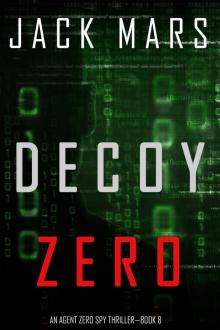 Decoy Zero
Decoy Zero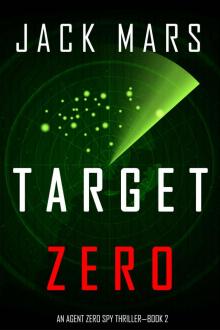 Target Zero
Target Zero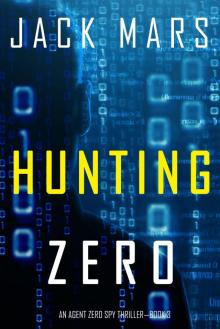 Hunting Zero
Hunting Zero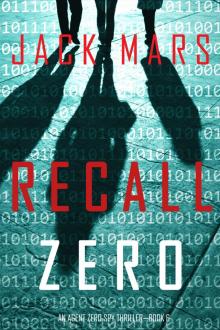 Recall Zero
Recall Zero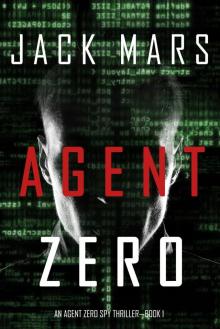 Agent Zero
Agent Zero Primary Valor
Primary Valor File Zero
File Zero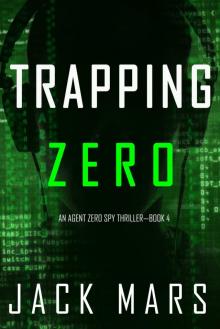 Trapping Zero
Trapping Zero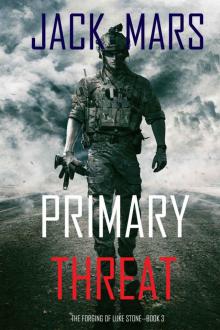 Primary Threat
Primary Threat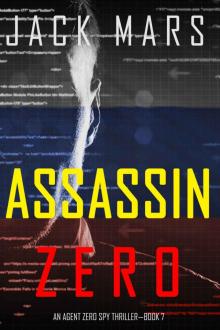 Assassin Zero
Assassin Zero Zero Zero
Zero Zero Zero Zero (An Agent Zero Spy Thriller—Book #11)
Zero Zero (An Agent Zero Spy Thriller—Book #11)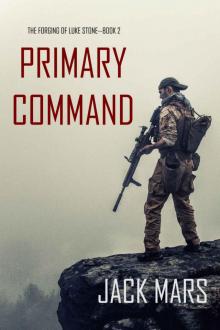 Primary Command
Primary Command![[Luke Stone 02.0] Oath of Office Read online](http://i1.bookreadfree.com/i/03/21/luke_stone_02_0_oath_of_office_preview.jpg) [Luke Stone 02.0] Oath of Office
[Luke Stone 02.0] Oath of Office House Divided
House Divided Oath of Office (a Luke Stone Thriller—Book #2)
Oath of Office (a Luke Stone Thriller—Book #2) Our Sacred Honor (A Luke Stone Thriller—Book 6)
Our Sacred Honor (A Luke Stone Thriller—Book 6) Luke Stone 04 - Oppose Any Foe
Luke Stone 04 - Oppose Any Foe Our Sacred Honor
Our Sacred Honor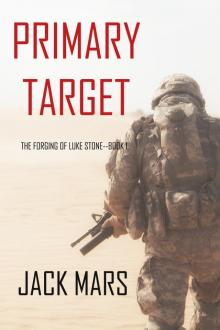 Primary Target
Primary Target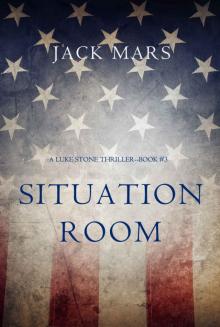 Luke Stone 03 - Situation Room
Luke Stone 03 - Situation Room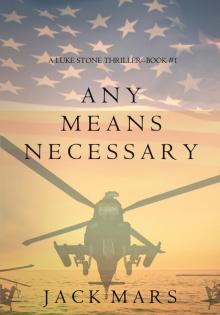 Any Means Necessary: A Luke Stone Thriller (Book 1)
Any Means Necessary: A Luke Stone Thriller (Book 1) Oath of Office
Oath of Office